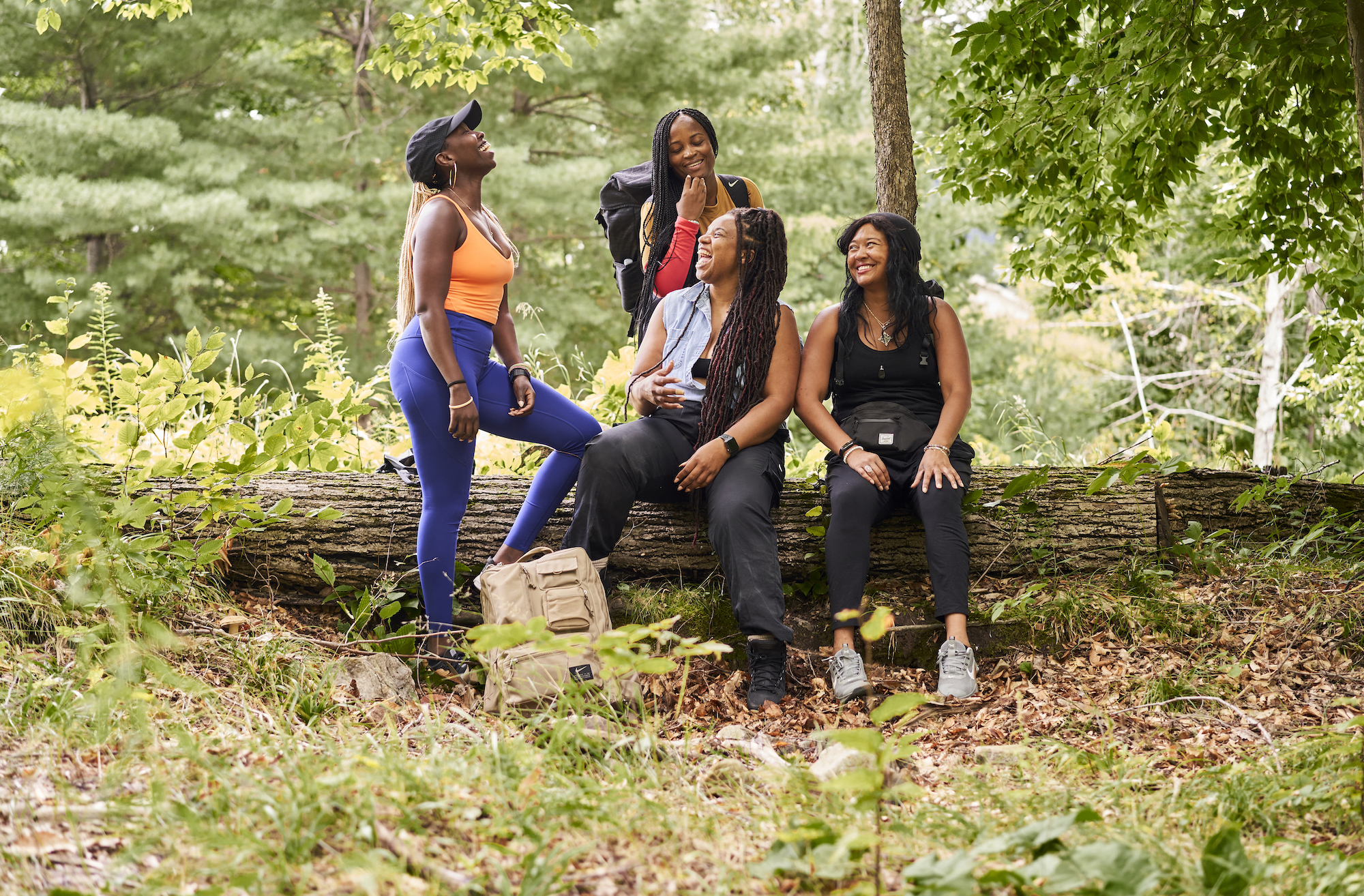
Back to Nature: How Nature Can Be a Form of Self-Care
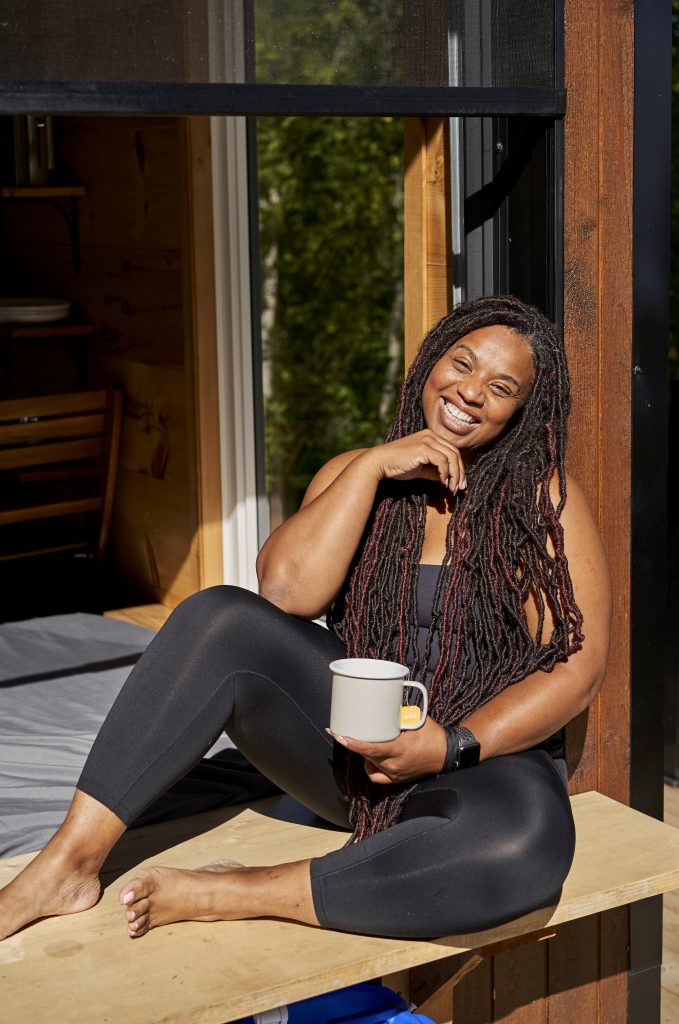
Rebeckah Price is a community builder, yoga practitioner and advocate for promoting inclusion in the wellness industry. She is based in Toronto. To follow her journey, find her here.
I live for moments that take my breath away. I live for moments where I want to soak it all in. Moments for me, make memories. I want to gather as many of these moments and store them in my memory bank. I especially save them for those days when I may not be feeling my best. I can pull from this bank and bring myself back into a space and time where my inhale was longer than my exhale. Being in nature provides me with so many opportunities to have these kinds of moments.
You see, I’m a big chaser of sunrises and sunsets in nature. There is something calming and easeful in being able to be in nature and take in the moments. As a wellness advocate who promotes more diversity and inclusion in the wellness industry, it is important to me to be in and experience the spaces where I may not traditionally be seen. Outdoor spaces are one such space. When you think of nature, I’m pretty sure a Black woman thriving in the forest is not what comes to the top of your mind. And I’m here to ask why not?
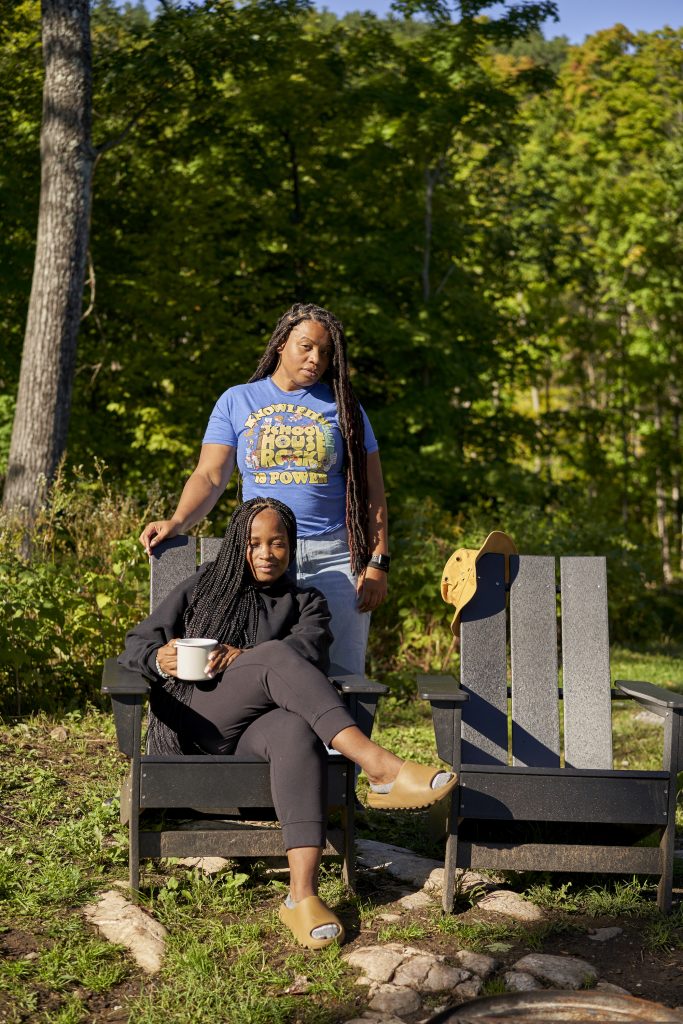
Research shows that people of colour are far less likely to engage in nature-based outdoor recreation activities, with historic discrimination being a large underlying factor. In addition to that, research also shows that people of colour were rarely considered to be major stakeholders in outdoor recreation or park-related activities.
I think it is time that we change the narrative of seeing people of colour in outdoor spaces. From a wellness perspective, there are many benefits to being outdoors and being in nature that are of great benefit to our mental, emotional and physical health. There is even a whole modality in therapy that espouses nature as a pathway to supporting our overall wellness called ecotherapy.
Ecotherapy is based on the idea that people are connected to and impacted by the natural environment. It is important to have pathways for communities of colour, communities who have traditionally been marginalized to be able to spend time outdoors in nature so that they can be supported by the mental, physical and emotional health benefits of spending time outdoors. It is also important for communities of colour to see themselves being connected to and a part of the outdoors and nature.
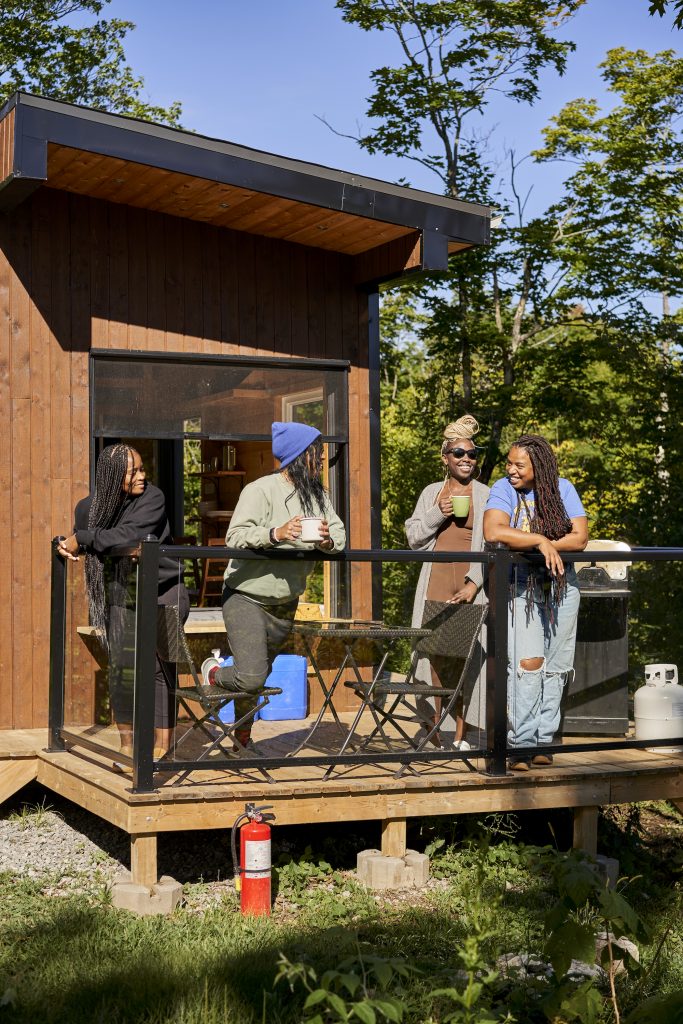
Recently I gathered up a few of my girlfriends and drove 3.5 hours outside of the city so that we all could unwind. This trip was a beautiful form of self-care for us all. There is something magical about watching the people you care about relax and be at ease. Moments like this are essential to our well-being. Spending time in nature provided them with the space to pause, to slow down and just be. I saw them take in subtle moments like noticing the bees on the flowers, admiring the amazing views of the lake, and getting up and having their coffee outside. I saw them hiking and laughing to just simply enjoy the evening breeze. Each of them capturing moments that poured into their well-being, moments to nourish them.
Every night we went to sleep soothed by the natural soundscape of nature and every morning we welcomed the daily reminder that birds brought along with them with the rising sun. We fell into the natural reset that nature provides to our bodies. For a group of Black women, this was especially important, to be grounded, nourished and softened by nature. For this group of Black women, it was healing, healing on an emotional, physical and mental level. It was a gentle reminder that we collectively need more moments like these.
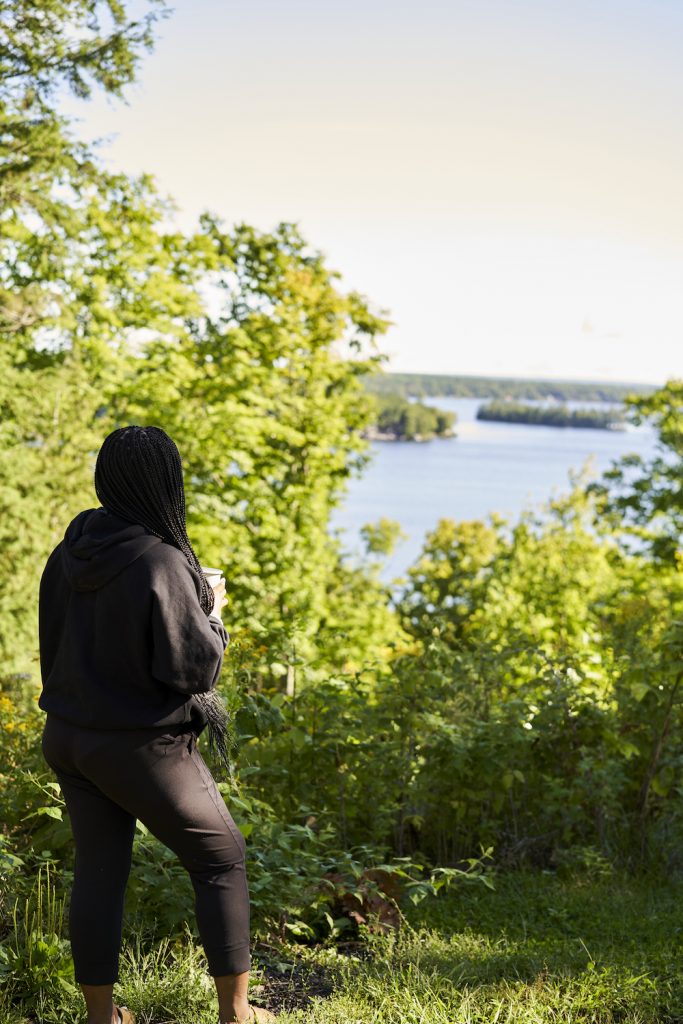
We all know that nature is healing and in a world that keeps us so disconnected, I’m hoping to see a shift towards seeing more people of colour adding soft living in nature to our self-care rituals. There is something very nourishing about being surrounded by the sights and sounds of nature. It is grounding and soothing. Soft living is an intentional decision to make choices and decisions that support your well-being and reduce your stress levels. It highlights the basic human right of a life that is deserving of ease and pleasantness. And I personally believe that more people of colour deserve a life of pleasantness and ease. Our collective well-being is dependent on it. I hope to see more representation and inclusion of people of colour in outdoor spaces and nature by brands, and businesses because they see the value in supporting our collective wellbeing.
Why? Because we all need moments that take our breath away… the moments where we get to soak it all in.
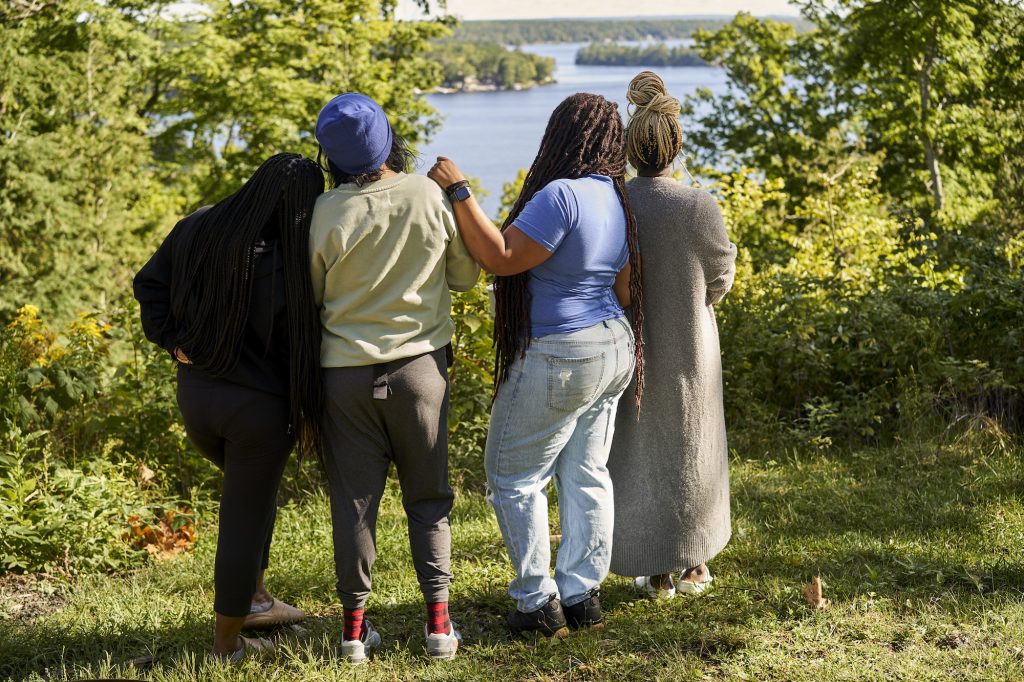
Our Calabogie Cabins
-
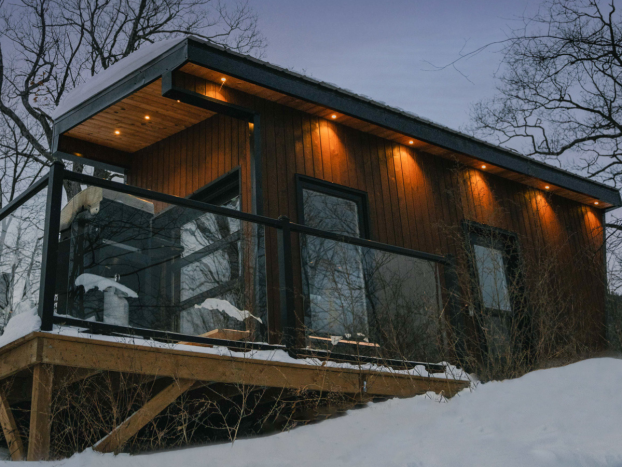 Wren CabinFrom: $179.00
Wren CabinFrom: $179.00 -
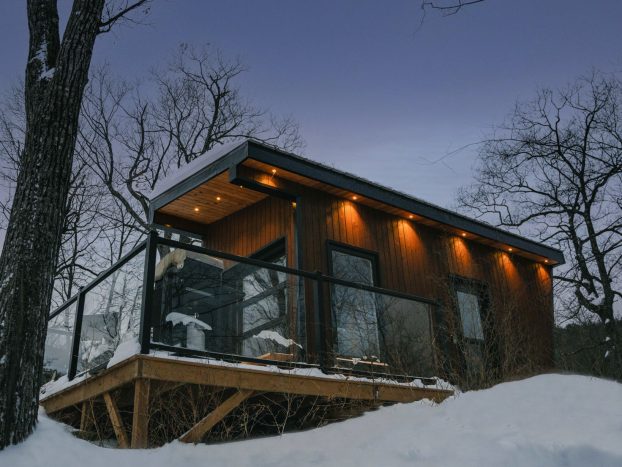 Starling CabinFrom: $179.00
Starling CabinFrom: $179.00 -
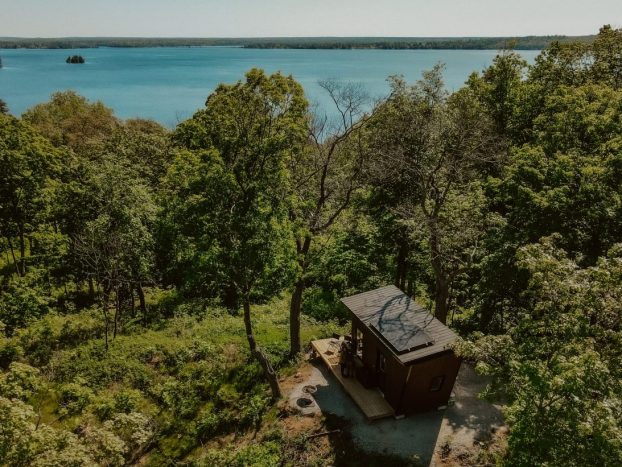 Finch CabinFrom: $179.00
Finch CabinFrom: $179.00
Blog & Photo Credits:
IG @rebeckahprice
Resources:
https://cnr.ncsu.edu/news/2020/12/nature-gap-why-outdoor-spaces-lack-diversity-and-inclusion/
https://www.goodtherapy.org/learn-about-therapy/types/econature-therapy
